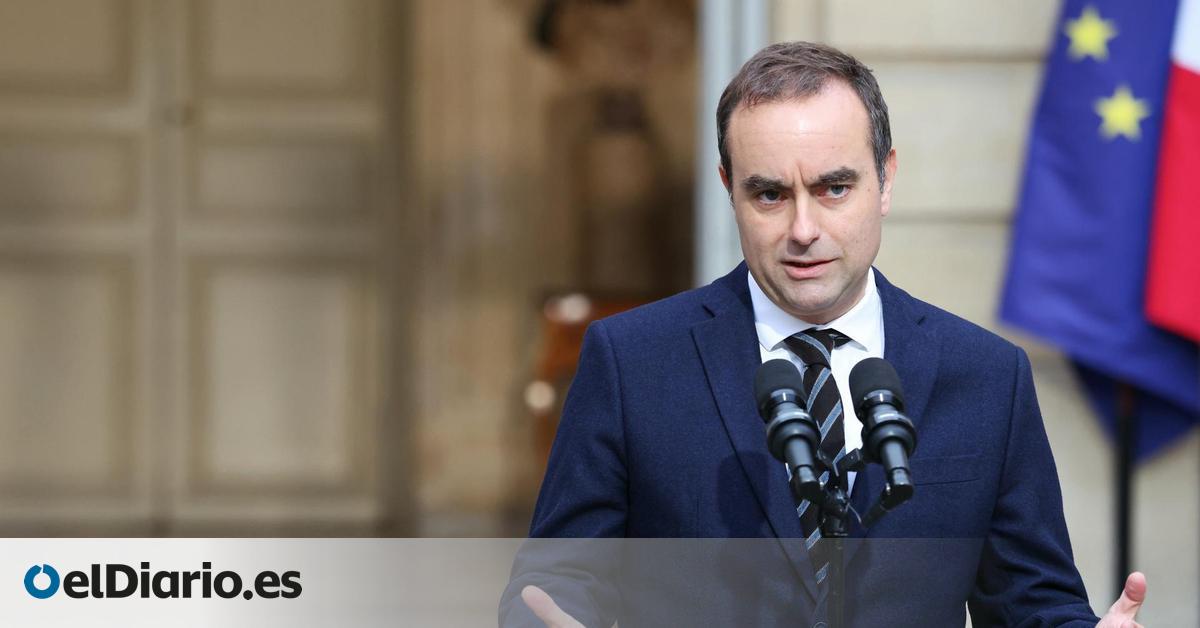
In his first official speech, the new French prime minister, Sébastien Lecornu, promised “ruptures; not only in the form but also in the background.” In the formation of his government, however, Lecornu seems to have opted for continuity. The main names of the new French executive, revealed this Sunday after more than three weeks of waiting and last minute negotiations among the center-right parties, as reflected.
Several macronist faithful repeat, such as Gérald Darmanin (Justice), former Prime Minister Elisabeth Borne (Education) or Jean-Noël Barrot (Foreign Affairs), in addition to the return of Bruno Lemaire (which will be Minister of Defense). The conservatives of the party Republicans retain culture (Rachida Dati) and, above all, interior that continues in the hands of the Bruno Retilleau, supporter of a repressive line on immigration near the one raised by the extreme right. Manuel Valls will also continue as a minister responsible for the overseas departments.
Now that the main faces of the government are known, the unknown on the life expectancy of the Executive is raised. The possibility of a parliamentary vote that forces Lecornu to resign – as happened with his two predecessors – is a permanent threat to the macronist prime minister, who has minority support in the assembly (220 deputies of 577).
The new head of government, appointed by Emmanuel Macron on September 9, has recognized several interlocutors to be “the weakest prime minister of the Vª Republic [actual sistema francés]”, During the meetings he has maintained over recent weeks with several political formations and unions.
Lecornu claims a change of method based on dialogue and commitments in the National Assembly, before which Tuesday must pronounce the traditional general policy speech, in which the great lines of his mandate will advance. In later days it is expected to face a first motion of censure, presented by France Insumisa that, presumably, will have the support of environmentalists and the Communist Party.
Although Marine Le Pen had declared not wanting to censor “a priori” to the new head of government, the statements of the national group leader (RN) in recent days show a certain ambiguity about the vote of the deputies of the extreme right in that first motion of censure.
Negotiation with the PS
At the moment, Lecornu is focusing on negotiating with the Socialist Party, the most plausible option to seek a minimum agreement, to avoid censorship, approve the budget and stay in office. Because if the new government survives that first censorship, its great challenge will be to bring to fruition the processing of next year’s budget, which must be approved before December 31.
The Prime Minister made an important announcement on Friday in this regard, committing to renounce article 49.3 of the Constitution that allows the approval of a bill without parliamentary vote. “In a Parliament that works, which represents the French, the force or coercion of the opposition cannot be imposed,” Lecornu argued, not to mention that the last three budgets were approved by this route.
The abandonment of 49.3 responds to a repeated claim in recent weeks by the Socialist Party. However, the distance between the demands of the PS and the concessions that macronists are willing to make – in particular in fiscal matters – still seem too important at the moment.
Gathered at the National Party Executive, on Friday night, the PS leaders claimed to expect “a new gesture of the prime minister before Tuesday” in the general policy speech “that demonstrates that he is turning to us and not towards the National Group (the party of Le Pen),” said one of the attendees of the French agency. The exit of the social democratic government.
Lecornu has been willing to soften the austerity measures announced by its predecessor, François Bayrou, unanimously rejected by the opposition. Although without giving up public debt and deficit reduction; The unknown lies in Si Lecornu will be able to find an acceptable commitment between macronists and socialists. On Saturday, the first secretary of the PS, Olivier Faure, said in an interview in The Parisian that “we go directly towards censorship if the situation does not change.”
The distribution of the efforts to be made is in the center of the public debate. In particular with regard to the contribution of people with income greater than 100 million euros. Bayrou’s budget project was one of the triggers of the social movements convened since the beginning of September, with the protests and blockages of September 10 and two strike days convened by the unions (September 18 and October 2). Workers’ organizations have also announced new calls for the coming months.
In this context, Lecornu, unlike its predecessors and against the policy that Emmanuel Macron has marked since 2017, has turned union organizations into an important interlocutor into their consultations. In particular, the great French reformist union, the Democratic French Confederation of Labor (CFDT), the most open to commitments.
Although macronists refuse to cancel the reform of pensions approved in 2023, as they claim unions and the progressive opposition, they estimate that there is a possible agreement in relation to the requests of the unions on the improvement of working conditions and an evolution to improve the pensions of the workers.
Pressure of the right and the PS
In any case, the political equation that the Prime Minister must resolve is complex, between the demands of the PS and the pressure of his own coalition, in particular of his conservative allies of the Republicans. The announcement of the new government was delayed until Sunday, after a meeting of the LR leaders to decide the participation of the right in the future government.
After the falls of the Governments Barnier and Bayrou, the failure of a new prime minister (in the course of one year) would increase political instability and pressure on Emmanuel Macron, which is indicated as responsible for his decision to conve parliamentarian different from the current one.
Meanwhile, the electoral calendar flies over the calculations of all. In addition to the uncertainty about the possibility of new early legislative elections, next year municipal elections will be held throughout France. All this with all parties preparing their strategies with the presidential of 2027 at the point of view.
Source: www.eldiario.es

